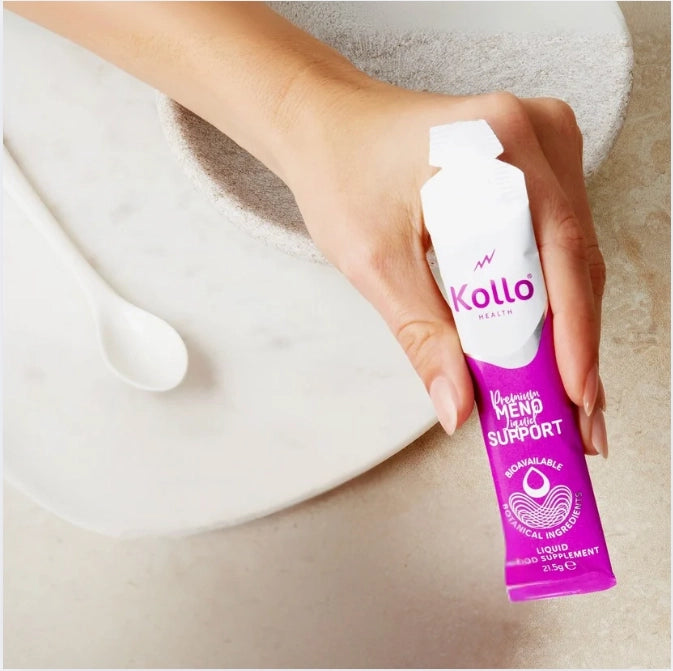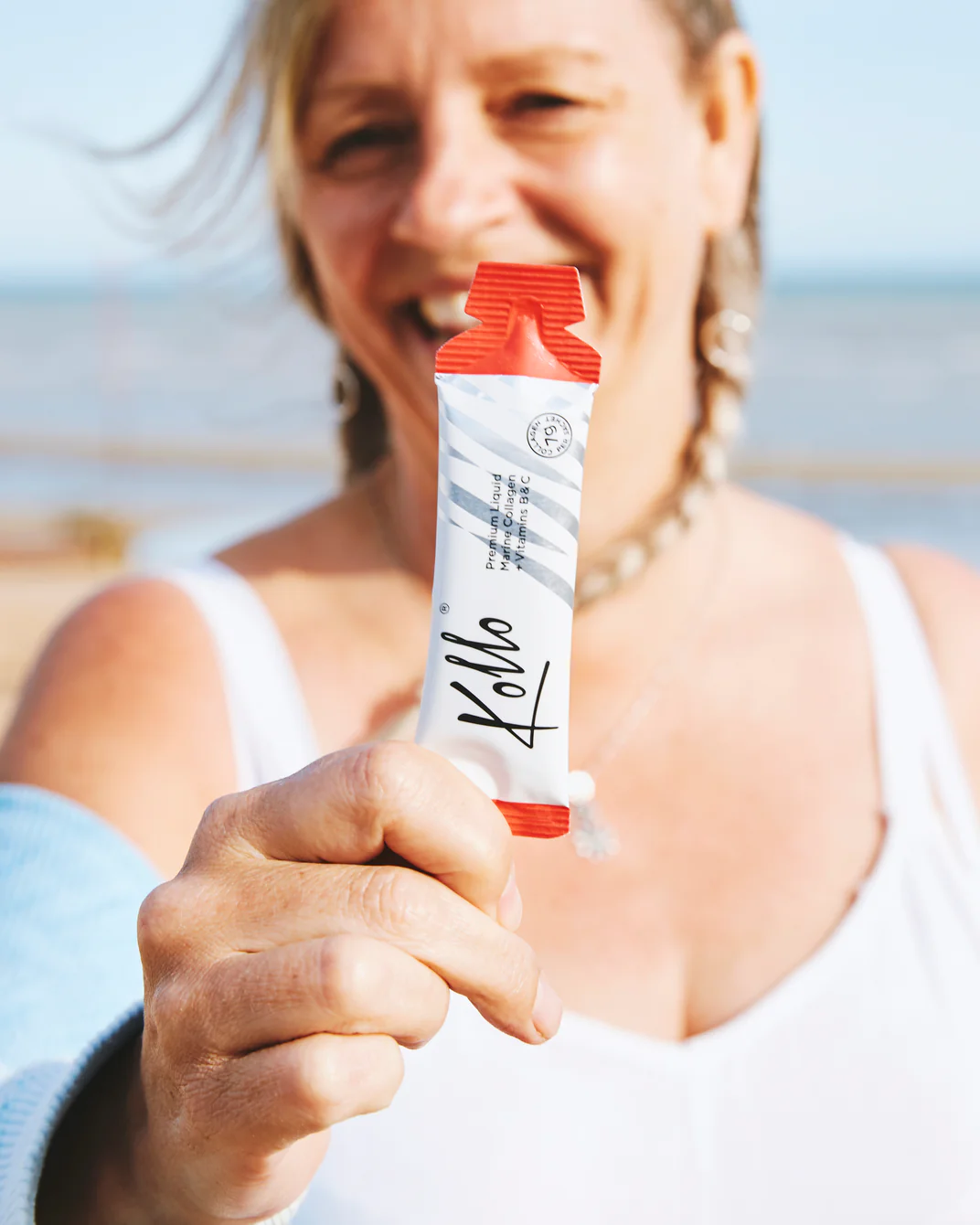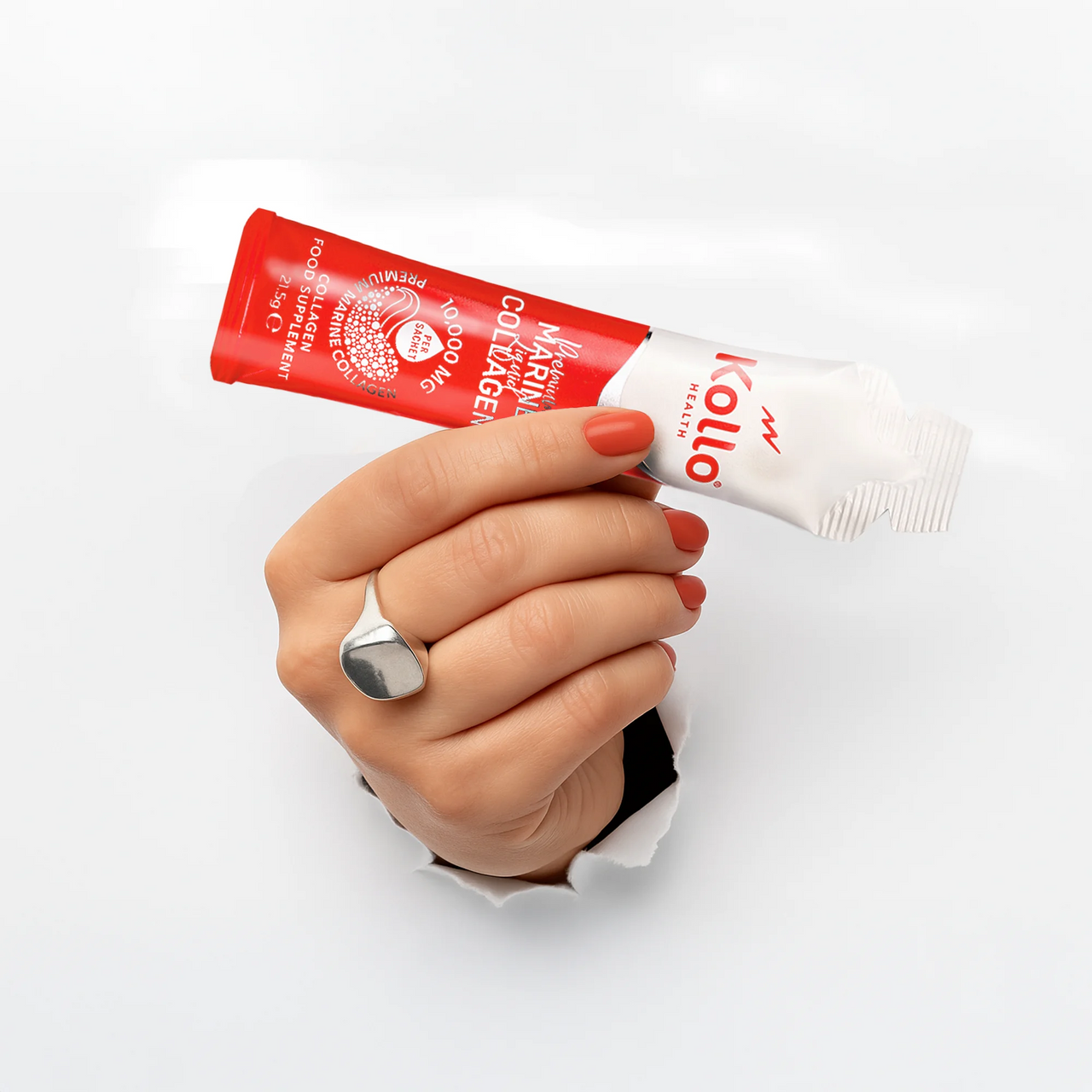As a woman, your body is constantly changing. Women reach menopause at around the age of 45, but it can also start as early as 30 and as late as 55 years. Menopause affects your body in so many ways, including weight gain, changes in skin texture, mood swings, and hot flashes. While these changes can be very unpleasant, incorporating supplements such as collagen can help you cope with the symptoms.
If you're reading this article, you may be approaching menopause or already experiencing perimenopause. Daunting as this may be, there is actually some good news for these two stages. Read on to learn the role collagen can play both before and during menopause and discover some science-backed ways collagen supplements can alleviate symptoms of menopause.
What Is Collagen, Exactly?
Collagen is a unique protein found in all living things’ bodies. In our bodies, it is a fundamental component of skin, bones, joints, the gut, cartilage and more. It is often thought of as the glue that holds the body together, and there is good reason for this. The problem is that our bodies' collagen synthesis begins to decline very early in adulthood - production starts to decrease in your 20s. By the time you reach the age of 50, your collagen production has virtually halved, so a collagen supplement can play a big part in healthy ageing and staying ahead of menopause.
Not all collagen supplements are equal. This is mainly because there are many different types of collagen, the most common of which (in humans) are Type I and Type III collagen.
Type I is found in:
- Skin
- Bones
- Ligaments
- Tendons
Type III is found in:
- Skin
- Blood vessels
- Intestines
Therefore, it is important to take collagen supplements that contain at least Type I collagen, but Type III is also highly desirable.
What Are the Stages of Menopause?
There are 4 stages of menopause in a woman's life:
- Premenopause: this is your normal productive life.
- Perimenopause: this is the time between your last regular period and your final period.
- Menopause: the time after your final period.
- Postmenopause: the time after menopause.
For the purpose of this article, we will focus on perimenopause and menopause, as these are often the most challenging stages.
What Are the Common Symptoms of Perimenopause and Menopause?
If there were a way to skip the perimenopause and menopause stages of life, everyone would use it. For most women, perimenopause arrives around the age 47 and continues for approximately 4 years. Common symptoms include:
- Irregular periods (light/heavy, long/short)
- Hot flushes
- Vaginal dryness
- Mood swings
- Difficulty sleeping
- Loss of bone density
- Forgetfulness
When you reach menopause, the menstrual cycle and fertility come to an end. This typically occurs around age 51, but the complete list of possible symptoms includes:
- Hormonal changes
- Reduces sex drive
- Mood swings
- Hot flushes
- Elevated heart rate
- Sweating
- Vaginal soreness and/or dryness
- Pain during sex
- Night sweats
- Difficulty sleeping
- Loss of hydration and volume in hair and skin
- Joint stiffness
- Weight gain in the midsection
Menopause can come with a host of problems, but one advantage is that you can wave goodbye to periods! Science-backed ways collagen can alleviate symptoms of perimenopause and menopause. You don't have to resign yourself to losing so many things you care about when menopause strikes.
How Collagen Can Alleviate Symptoms
Taking Kollo Health’s collagen daily for 4 to 6 weeks may help improve overall well-being. It’s a premium liquid marine collagen supplement packed with vitamins C, B1, B5, B6 and B12, each having the potential to work miracles on your skin and overall health. These nutrients help in the following ways:
- Vitamin C: Promotes collagen production, brightens skin, and reduces fine limes. It’s also an incredible antioxidant.
- Vitamin B1: Boosts collagen production and aids the skin’s regeneration process.
- Vitamin B5: Preserves skin moisture, improves elasticity, prevents acne, and reduces signs of ageing.
- Vitamin B6: Reduces inflammation and dryness while speeding up cell regeneration.
- Vitamin B12: Boosts metabolism in skin cells, speeding up cell recovery and regeneration. It also reduces skin fatigue, contributing to thicker, firmer skin while reducing inflammation, dryness, and acne.
With all these nutrients, it’s easy to see how beneficial our premium marine collagen is for your body in more ways than just external looks. Below are a few benefits you may notice when you start taking it daily.
1. Collagen Fights the Signs of Ageing in Skin
Menopause makes the loss of collagen in the skin even worse than age alone. One 1999 study found that, in the first 5 years of menopause, women lose around 30% of the Type I and Type III collagen in their skin. The result is that wrinkles and dry skin set in around the 50s, which many people would rather keep to a minimum. Having said that, remember that Mark Twain wisely stated that "wrinkles...merely indicate where smiles have been".
2. Collagen Reduces Cellulite
As menopause causes your oestrogen levels to plummet, cellulite begins to set in. This is further exacerbated by the drastic decline in the levels of Type I and Type III collagen in the body. In a double-blind study conducted in 2015, 105 women aged 24-50 with moderate cellulite were given either 2.5 grams of collagen peptides or a placebo every day. After 6 months, the women taking collagen peptides experienced a substantial decrease in the appearance of cellulite on their thighs.
3. Collagen Strengthens Your Hair and May Slow Greying
Hormone changes during menopause can cause varying degrees of hair loss in women. But collagen, making up a large percentage of the layer of skin that contains hair follicles, may help prevent hair thinning and loss. Thanks to its potent antioxidant properties, collagen may even slow greying. It has the potential to reduce oxidative stress, which can lead to slower greying.
4. Collagen Strengthens Nails
Our nails contain a large amount of Type I collagen. So when our collagen levels are low, the nails become brittle and break easy. A study involving 25 participants taking a daily dose of 2.5 grams of collagen peptides over 6 months found that participants experienced a 12% increase in nail growth and a 42% decrease in nail breakage.
5. Collagen Helps Balance Hormones
Menopause subjects the body to extreme hormone changes. Oestrogen and progesterone plummet, leaving you feeling flushed, grumpy and unlike yourself. Amino acids can help with balancing the hormones, and collagen contains 19 of the 20 essential amino acids the body needs. Three of collagen's most abundant amino acids are proline, hydroxyproline and glycine. A study indicates that glycine may function as a signal to activate thyroid function. Furthermore, collagen contains the non-essential amino acid tyrosine, which converts into the 'feel good' chemical dopamine and the hormone norepinephrine. These two hormones are essential for regulating mood.
6. Collagen Relieves Joint Pain
The joint pain commonly associated with menopause is caused by low oestrogen levels. When oestrogen levels drop, inflammation in the joints commonly increases, increasing the risk of osteoporosis and osteoarthritis. The result is joint pain. A high dosage of collagen powder every day (10-20 grams) has helped many women with joint pain caused by low oestrogen.
7. Collagen Can Improve Gut Health
As the gut microbiome ages, you can experience a whole host of unpleasant digestive problems. With low collagen levels and high stress, the balance in the gut is disturbed, increasing the risk of things like weight gain and autoimmune disease. This is why high-quality probiotics are recommended. Combined with collagen supplements, you get the benefits of a probiotic for the gut flora along with the healing and sealing in the gut brought about by the collagen boost
8. Support Lean Muscle Mass With Collagen
It can be harder for women (and men, for that matter) to stay lean as they get older. Weight gain increases the risk of things like diabetes and cardiovascular disease. A study in animals discovered that using collagen as a supplement can reduce weight gain.
9. Collagen Can Help Increase Bone Density
Bone loss accelerates during menopause due to a decrease in estrogen and collagen. Collagen makes up as much as 90% of bone, and a study found that women with a mean age of 63 experienced an increase in bone density by taking 5 grams of collagen peptides a day for 12 months.
10. Improvements in the Health and Composition of Arteries
Coronary artery disease becomes a bigger risk with age due to a build-up of plaques. Type III collagen plays a role in keeping arteries supple, but the levels of this collagen deteriorate during menopause. A study in 2017 found that collagen peptides, consumed daily, helped reduce cholesterol in individuals with atherosclerosis (an arterial disease that causes fats and cholesterol to build up). Atherosclerosis is a contributor to nearly 50% of deaths in the Western world, so a high-quality protein supplement may help ward off some of that risk.
11. Supports Better Sleep and Mood
Menopause can trigger anxiety in many women, making it difficult to sleep. In contrast, for others, the onset of depressive moods may lead to non-restorative sleep and early morning waking. Other factors linked to menopause, such as hot flushes, night sweats and bloating, can also cause insomnia.
However, Kollo Health’s collagen could help improve the quality of your sleep and mood. Collagen contains glycine, which decreases core body temperature and promotes REM sleep, while vitamin B12 aids the body in producing serotonin (the “happy hormone”) and melatonin (the sleep hormone).
Final Thoughts
Above, we have listed common menopause symptoms and the benefits of collagen for menopause. Many of our customers are women who are going through menopause, and some of the most positive feedback we get comes from these lovely ladies. Everything from reduced joint pain, improvements in hair, skin and nails to a more balanced mood and even improvements in gut health are reported. This is why we are confident that Kollo Health’s marine collagen supplements can help alleviate many of the symptoms of menopause - it's definitely worth a try if you are having difficulties.







